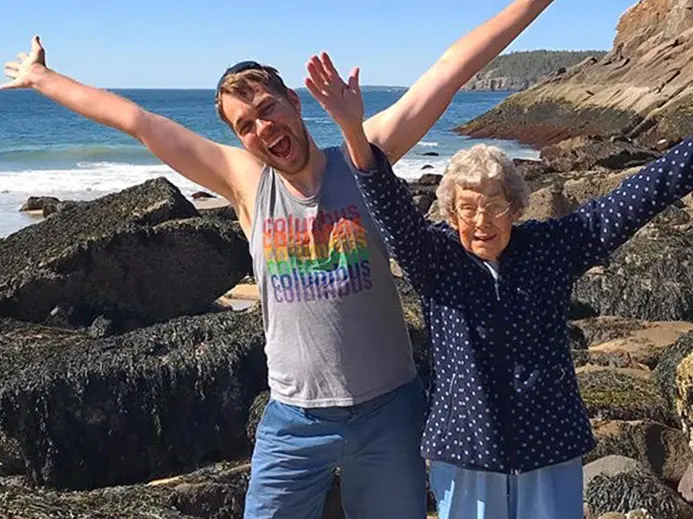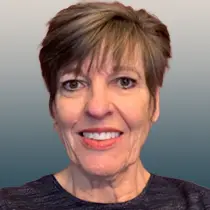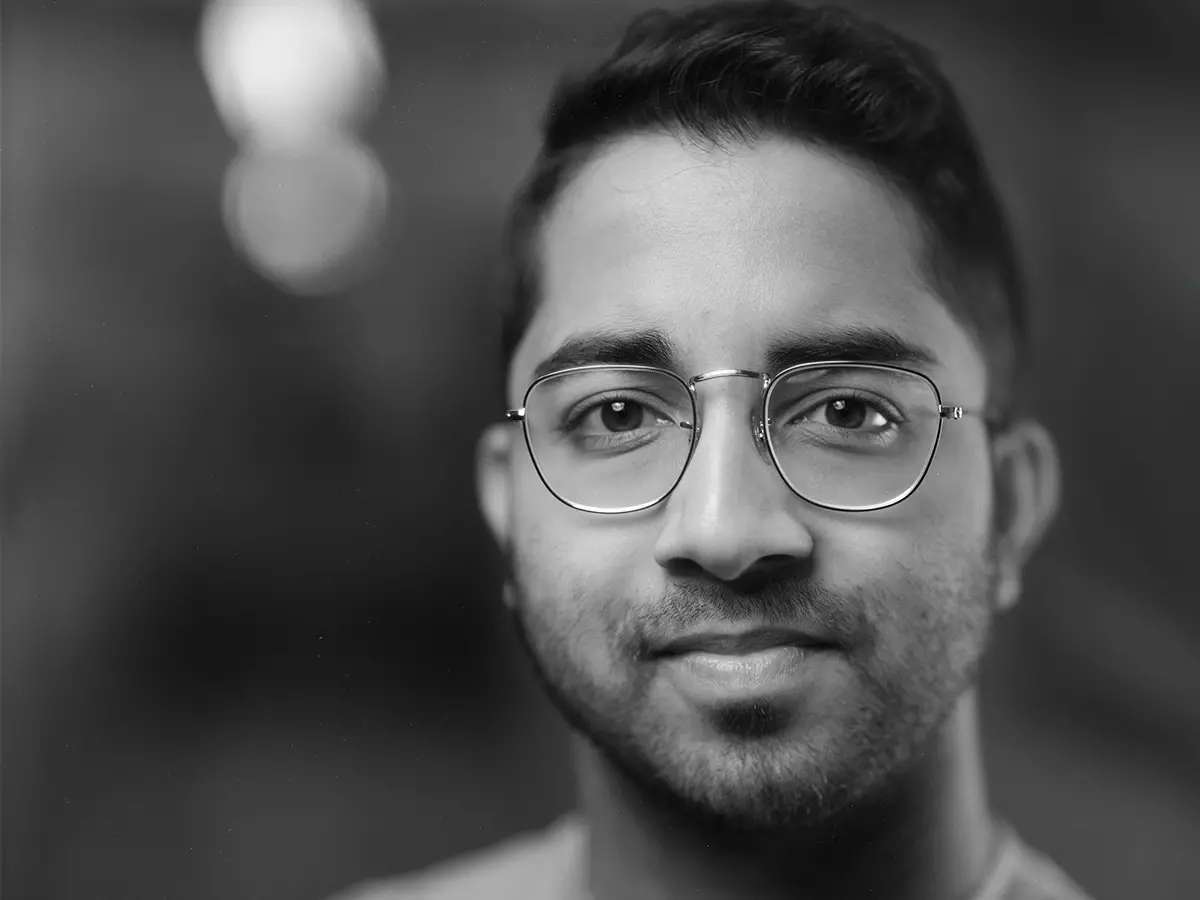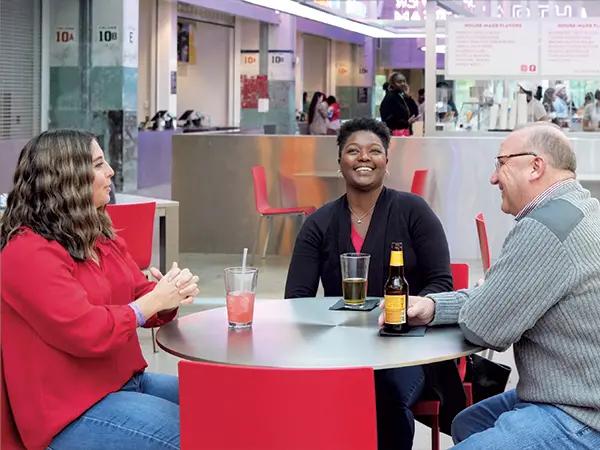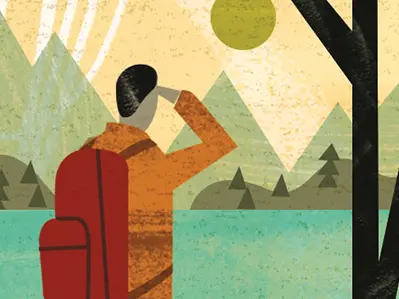This grand pair is counting adventures, not years
Brad Ryan ’16 DVM, ’17MPH and his grandmother Joy Ryan completed their mission to visit every national park in the United States and its territories.
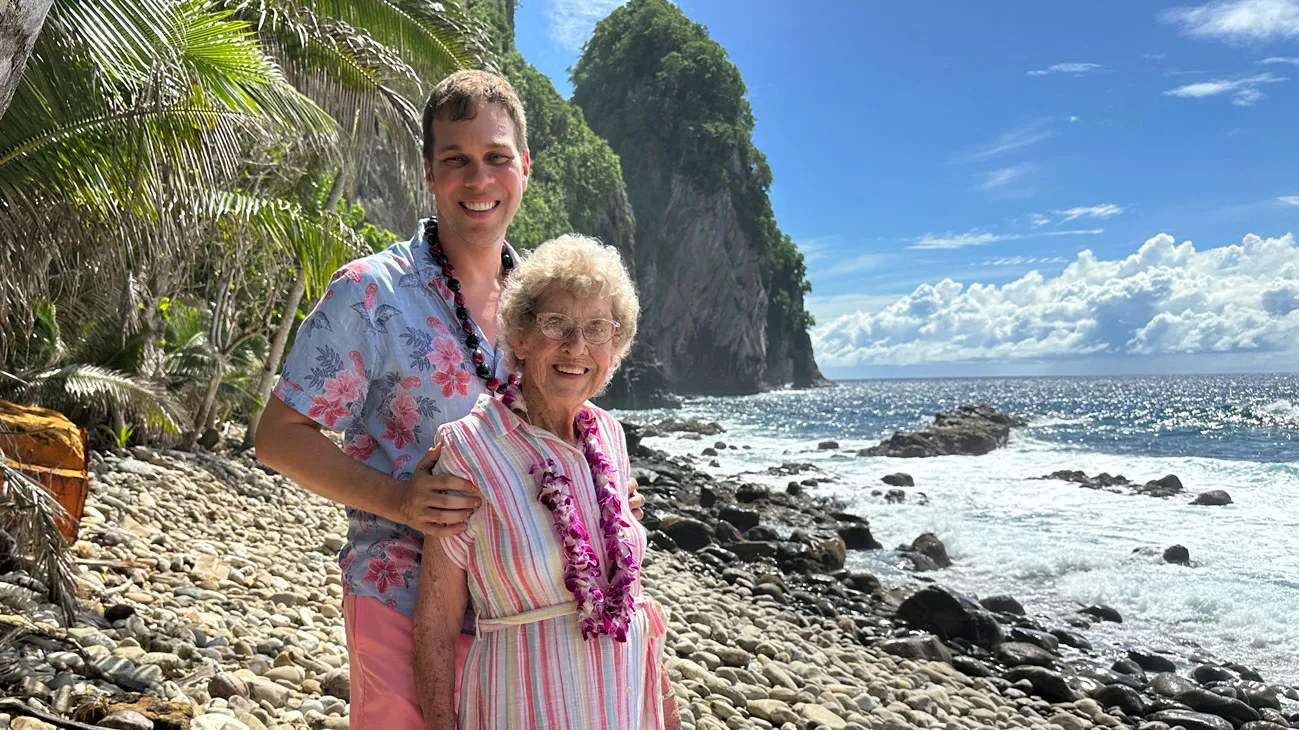
-
Why do you think your relationship resonates with so many people?
Brad: There is this universal love for this kind of relationship, and that nostalgia pulls on everybody’s heart strings in the same way. We met people from all over the world with all sorts of differing political perspectives, religions, races, ethnicities, everything — we’ve been at their dinner tables — and there was something we were both tapping into: love. They love their grandparents, their parents and their families. And that is not partisan.
Joy: I agree. It’s all about love and connecting with one another. Once, when we had just finished filming a TV spot, the cameraman came up to me and said he was going to have his 9-year-old daughter call her grandmother. There you go, that’s what I mean.
-
What is your greatest takeaway?
Brad: If we don’t have a culture where we value intergenerational connection, we rob ourselves of a powerful resource that can help us be resilient, caring human beings.
Joy: You’re never, ever too old to get out and do something!
-
What were your favorite moments?
Joy: I’d never seen a mountain before. But when I looked at those Great Smokies, I told myself I was going to climb this mountain if it killed me! We went up 2 1/2 miles, hanging onto cables. When I got to the top, there was a whole bunch of college kids, and they gave me a round of applause.
Brad: It was our first trip. I was in vet school, and I was in the middle of my own storm. That was such medicine for my soul, to climb that mountain with her and to see her willingness to be there for and with me.
-
Can you tell us about another memorable experience?
Brad: In American Samoa, we were really overwhelmed by the intergenerational connections we witnessed. There, taking care of the elderly is an honor. It’s the norm. We saw it in the eyes of everyone we met. This appreciation for what my grandma and I had, and what we were doing, it was so in sync with this fundamental part of their culture.
Joy: I’ll never forget the people we met on the island. The Samoan women ran up to us in the hotel lobby with their arms out. Screaming for us. They wanted to talk to us and take pictures with us. They loved that we were traveling together because they, too, love their families and especially their elders.
-
What do you treasure most from these past eight years?
Joy: I loved being with Brad. Some people think that it’s only the older folks who have wisdom, but I learned an awful lot from Brad. It was really a joyful eight years.
Brad: Every time I took a photo of my grandmother, I felt like I was gathering a treasure chest of gold. This is regret that I don’t have to live with: that I didn’t seize the day. And I got to make sure that her life had this trove of memories, too.
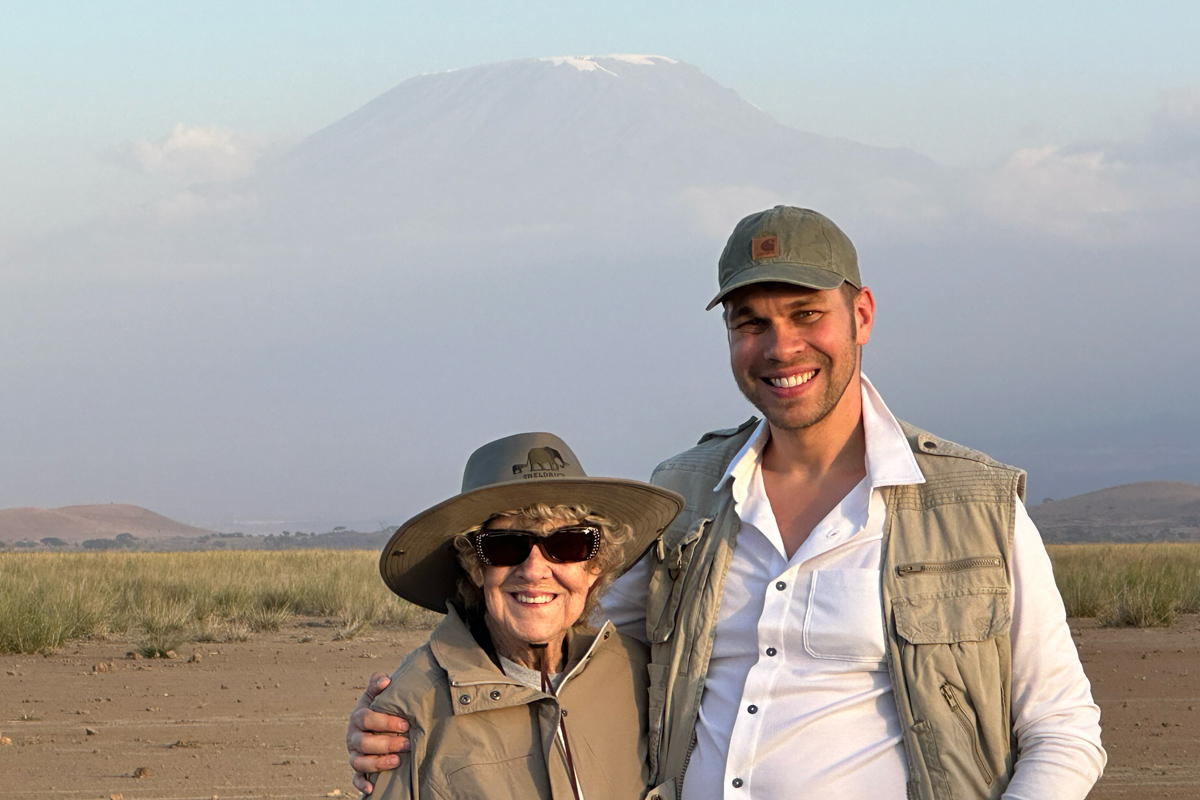
After Grandma Joy, at 93, may have become the oldest person to visit every U.S. national park (Guinness Book of World Records confirmation still to come), the Ryans set off for Kenya. (Photo courtesy of @grandmajoysroadtrip) -
In July you returned from an 11-day trip to Kenya. Tell us about it.
Brad: We saw a breathtaking array of wildlife at Amboseli National Park and the majestic animals of Nairobi’s Giraffe Centre. Visiting the remote Maasai village of IL Ngwesi was a powerful experience for us. I especially loved watching Grandma Joy interact with the tribal women and learn their traditions. Her eyes were as open as her heart.
Joy: I was embraced by the Maasai women and loved learning about their culture, especially their beautiful clothing, a big source of pride for them.
-
Is there a book about your adventures in the works?
Brad: Yes, we are working on a memoir. Stay tuned!
-
What did you discover about America and the people you met along the way?
Brad: The more we traveled, the smaller the world felt. We found out that there is so much more that we all have in common, rather than our differences. You go someplace and it might seem different on the outside, but it’s just a community of people trying to get by, surviving with what they have.
Joy: Our eyes were open to the harsh realities that so many people face in this country and around the world. Whether we were walking through Native American reservations in the Dakotas or meeting people in small coastal towns in Alaska and American Samoa, we got to know families who had barely enough food for their families. And yet here they were, taking care of their villages — the people and the animals, as if they were their own. Those were the moments that stopped you in your tracks.
-
Is there a message you were hoping to send by going on this adventure together?
Joy: I wanted to wake up the older people. Just because you’re older doesn’t mean you have to sit on that chair or couch forever. I’ve gotten several letters from older people saying, “I’ve decided that if you can do this, then I can do something.” They tell me how thankful they are and that they now have a purpose.
Brad: I also wanted to wake up the younger people — my generation — to realize that none of us has enough time, and there is a way that you can minimize future regret by creating these memories now.
-
What park would you like to revisit?
Brad: The place I most want to go back to is Redwood National and State Parks in California.
Joy: Me too! You wouldn’t believe the feeling you get when you stand at the base of those redwood trees, and you know that they’ve been here for hundreds and thousands of years. They’re battle-scarred. They’ve been struck by lightning, I don’t know how many times, and yet they stand like soldiers, waiting for the next storm. That takes courage, after you’ve been struck by lightning, to say, “I’m gonna keep on growing.”
-
Brad, in addition to your work with Antech Diagnostics, a veterinary diagnostics and testing company, what comes next for you as a veterinarian?
Brad: I want to work in underserved areas of the world, where there isn’t a veterinarian infrastructure, and tie that work with community-based programs that support the people. If people don’t have even a basic quality of life — health care and education — they certainly won’t have the resources to take care of animals.
For example, in American Samoa, there are more than 40,000 feral dogs but not one full-time veterinarian. One of my goals is to return there and begin working with the governor’s office to build an infrastructure to address this crisis, while at the same time helping to educate and train villagers in animal care.
-
Brad, what was another meaningful journey you took with your grandmother?
Brad: Shortly before grandma and I were to leave for the National Park of American Samoa, I received news that my dad was in the hospital in Louisiana. He had a short time to live. At first, I didn’t want to go see him, but I couldn’t have lived with myself if I didn’t get my grandma there to say goodbye to her son. So, I drove us to Louisiana and by then my father was on a ventilator. Both of us had a chance to say goodbye and I had the chance to say the words to him that I believe brought us both peace. It was a pivotal moment in my life, but it absolutely would not have happened and if I hadn’t spent the last eight years with Grandma, learning to heal and learning to open my heart.
The power of moving forward
Brad Ryan shares how his travels improved his mental health journey on Ohio State’s Health & Discovery website, a great source for news on health, wellness and medical innovation from university experts.
